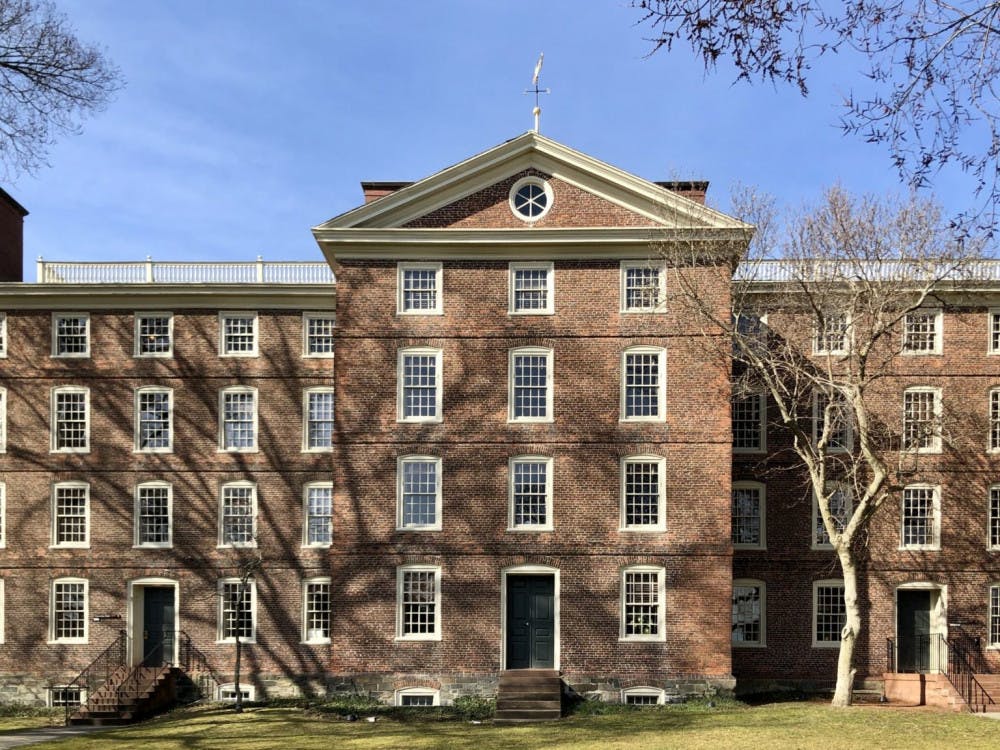Recipients of the 2021 Seed Awards will receive a total of $1 million in funding according to a Feb. 22 Today@Brown announcement from the Office of the Vice President for Research.
18 projects across a variety of fields, predominantly physical and life sciences, will receive funding through Seed.
The annual Seed program began 18 years ago and is part of the University’s efforts to support research, Vice President for Research Jill Pipher wrote in an email to The Herald.
“The focus is to identify and support strong research projects that need early funding to help them get off the ground. The Seed funds enable the researchers to be more competitive in applying for external funds and to start new collaborations across disciplines,” Pipher wrote.
Every fall, the OVPR invites researchers in all disciplines to submit project proposals, according to Pipher. The proposals are then “reviewed by a group of experienced faculty and deans” and assessed for their financial needs to determine the amount of funding they may receive. A typical Seed award is around $50,000 and can reach $100,000 for cross-disciplinary collaborations, Pipher added.
The OVPR estimates that Seed awards have a 13 to one return on investments, meaning that for every dollar the University invests in projects, $13 more in additional funding are later gained, according to Pipher.
“It was very exciting to receive this award for a couple of reasons,” said Assistant Professor of Engineering Vikas Srivastava, who received the award for his group’s project on regulating the pH of cancer tumor microenvironments using a hydrogel. The award will support his group’s research for a year.
“The most exciting part” of receiving the award for Srivistava is “the fact that the reviewers who are experts in the area found merit in the proposal, (which) indicates that there is enthusiasm about the ideas that we proposed,” he said.
The Srivastava lab created a hydrogel, a polymer which resembles Jell-O, to counteract the acidity of tumor microenvironments, which it expects would make cancer less conducive to metastasizing. The researchers plan to use the Seed funding to measure the effects of their hydrogel therapy on an aggressive breast cancer cell line.
“This award is really beneficial to us because it helps us get more resources that we previously weren't able to attain from any other means, and allows us to branch out and actually try new things,” said Kevin LoGiudice GS, who began the cell-culture work for this project.
One of the other projects funded through the Seed program studies neuron-glia synaptic interactions in Alzheimer’s Disease. The research is a collaboration between Assistant Professor of Molecular Biology, Cell Biology and Biochemistry Yu-Wen Alvin Huang and Assistant Professor of Molecular Biology, Cell Biology and Biochemistry Ashley Webb.
“We have very distinct, but complementary expertise,” Huang said. He added that while Webb’s expertise is in studying age-related neurological disease using mouse models and genomics techniques, Huang’s specialty is in studying neurodegenerative diseases such as Alzheimer’s using stem cell-based monitoring systems. “To us, this is not just a new research direction for our lab, but it is also a new research horizon for the research field of Alzheimer's Disease.”
Assistant Professor of Engineering Fabiola Munarin’s independent research project through the Coulombe Lab also received Seed funding. Munarin is exploring the mechanisms of ischemic wounds — wounds caused by reduced blood flow — in humans and rats that have diabetes. Using that information, she is working on developing a novel class of therapeutics customized for diabetic patients.
“Diabetes is a very challenging pathology for wound healing because the cells of the immune system are compromised,” leading to many “complications — all of which are impeding their regeneration or repairing of wounds,” Munarin said. For her independent research project, Munarin is trying to leverage cells in the body, including immune cells, to repair ischemic wounds.
Several of the Seed projects include undergraduate and graduate student researchers. In the Srivastava lab, the Seed award will support students in conducting novel research in the cell mechanics aspect of the project.
“Professor Srivastava and everyone else in the lab is very open to new ideas, and they are incredibly generous,” said Roberto Castro ’22, who was involved in the creation of the hydrogel. “They make me as a student feel very much like a contributing researcher and that it’s a group effort.”
Despite not being able to continue their research in-person due to the pandemic, Castro and Amy Oh ’22, who also works in the Srivastava lab, were able to engage with the project remotely.
“Because of the (COVID-19) situation, I was in Korea and couldn't physically be in the lab,” Oh said. “But when I would send emails and ask for updates or explanations of certain parts of the project, they were really open and explained everything so I was always fully aware of what was going on.”
Students involved in projects funded by the program shared their appreciation of the support for their research. “Having an award available to us lets us not have to limit our aspirations for the project,” Castro said.
Gabriella was a Science & Research editor at The Herald.





